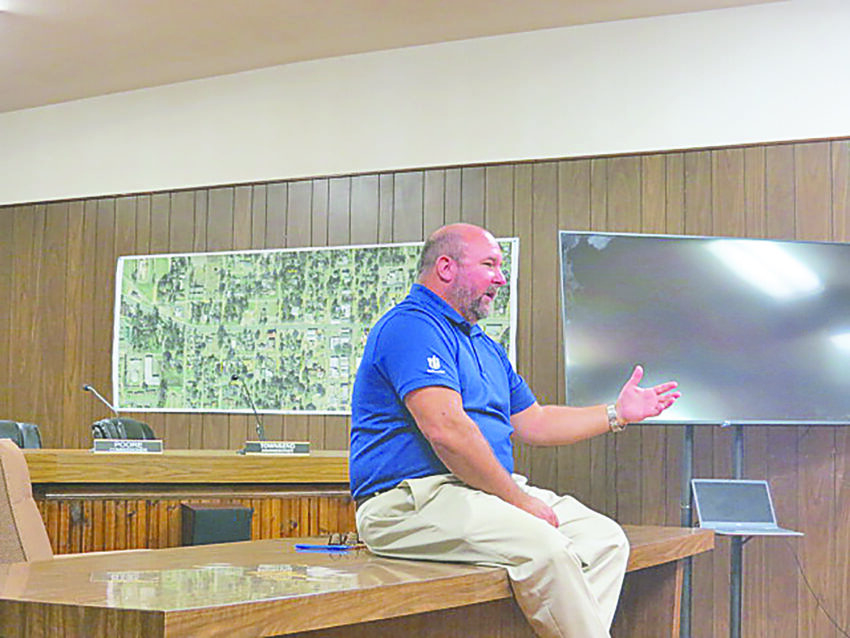Mickey Starling
reporter3@greenepublishing.com
On Monday, Aug. 28, Madison City Commissioner Byron Poore held his first town hall meeting with residents of the City of Madison. Though the clouds were darkening ahead of Hurricane Idalia's arrival, a good number of residents were in attendance at City Hall.
Poore began the meeting with a discussion of the differences between the city’s general fund and enterprise fund. In general, his explanation focused on the fact that the general fund consistently runs at a deficit of approximately one million dollars, while the enterprise fund posts a profit of over one million dollars annually. Money is routinely transferred from this account to the general fund to make ends meet.
Poore presented several options for balancing the general fund’s budget without transferring funds from the enterprise fund. Primarily, Poore suggested increasing the city’s tax base by developing a 128 acre area of city-owned property by constructing income-based housing. He also pointed to department cuts as another option.
One resident inquired as to how many other commissioners saw the budget disparities as a problem. While Poore was replying, another resident responded with, “That man right there [pointing to Poore] is the only one.”
City resident Kirk Pittman asked how long this issue existed. Upon hearing that it had been around for a long time, Pittman remarked that, “It seems the commission seems to be dumbing down.”
Poore went on to state that the city was making a high profit on services and utilities offered, “all on the backs of the citizens.” Others repeated the question as to how to remedy the problem, and Poore offered that departmental cuts were the best solution. Several departments were discussed, including the police and fire and rescue departments, which were both cited by Poore as having excessively large budgets for the number of calls they respond to. Mortician J.P. Moore lightened the mood of this discussion by stating, “I hear all these sirens, but there aren’t any dead people.”
On a serious note, Moore asked whether making the mayor’s position elected rather than rotational would give additional oversight to the commission’s decisions, especially concerning the transfer of funds between accounts. Poore stated that the city’s charter would have to be reworded to make that happen, which requires 200 citizens to sign a petition requesting such action.
The meeting concluded with residents expressing the desire to have more town hall meetings in the future, and Poore assured them he was willing to hold more of them.

